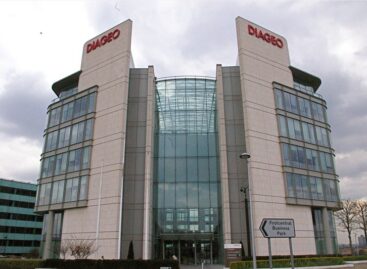China’s place in the global economy: the future isn’t “Made in China”
According to Dr Tamás Matura, China expert and associate professor at Corvinus University of Budapest, the limitations of China are much bigger than the state’s official narrative would have us believe.
This article is available for reading in Trade magazin 2025/8-9.

Dr. Tamás Matura
China-expert, associate
professor at Corvinus
University, Budapest
China’s growth that used to be in double digits is now maximum 4.8% and may remain below this level for some time.
Not the engine of the global economy anymore
The reasons for the slowdown aren’t only cyclical, but also structural. One of the country’s most important pillars of growth, the real estate market, is in crisis. An estimated 60-90 million unsold homes have accumulated in the sector that previously accounted for nearly a third of GDP, and giant companies such as Evergrande have gone bankrupt. With 40-70% of household wealth tied up in real estate, the collapse in prices has shaken consumer confidence. People are saving rather than spending, which is also blocking the recovery of domestic demand. Investment – the former engine of growth – has been fuelled by credit for years and is becoming increasingly ineffective: the economy is saturated and firms are heavily indebted. China is no longer driving the global economy to the same extent as in previous decades, while it is trying to offset its own structural problems with geopolitical toughness.
Cracks in the system from within
The biggest challenge for the Chinese economy is its accelerating demographic decline. Chinese society is ageing, the work ethic of younger generations is deteriorating and structural unemployment is rising, especially among graduates. There is a growing dissatisfaction, young people’s confidence has been shaken and the “Chinese dream” has lost its appeal. The working-age population is steadily declining, as natural population growth has been negative since 2022 and the birth rate is around 1.1 – one of the lowest in the world. This not only affects production but also threatens the entire welfare system. Although China has achieved spectacular results in certain fields of technology (e.g. e-vehicles, AI), the structure of its economy continues to be based on mass production and state investment.
What does this mean for us?
China’s global weight is still significant, but its network of relationships is being reorganised – and Europe could be the loser in this process. Dr Tamás Matura believes that an asymmetrical relationship has developed between the EU and China: while Chinese companies, especially in the technology and e-mobility sectors are more and more present in Europe, the access European companies have to the Chinese market is diminishing. Hungary is particularly exposed: although significant Chinese investments have been made in Hungary such as the CATL and BYD factories, these are largely accompanied by state subsidies and political gestures, reinforcing economic and diplomatic dependence. If China slows down or the EU tightens its policies or a conflict escalates, there can be serious consequences for Hungary. Diversification is therefore essential, particularly towards South Korea, Japan, the US and Western Europe. Today business success depends on three factors: risk management, partner diversification and geopolitical awareness.
Related news
Diageo ‘mulls future of China business’
🎧 Hallgasd a cikket: Lejátszás Szünet Folytatás Leállítás Nyelv: Auto…
Read more >China launches antitrust investigation into Trip.com
🎧 Hallgasd a cikket: Lejátszás Szünet Folytatás Leállítás Nyelv: Auto…
Read more >Related news
A stable compass in the Hungarian FMCG sector for 20 years
🎧 Hallgasd a cikket: Lejátszás Szünet Folytatás Leállítás Nyelv: Auto…
Read more >









